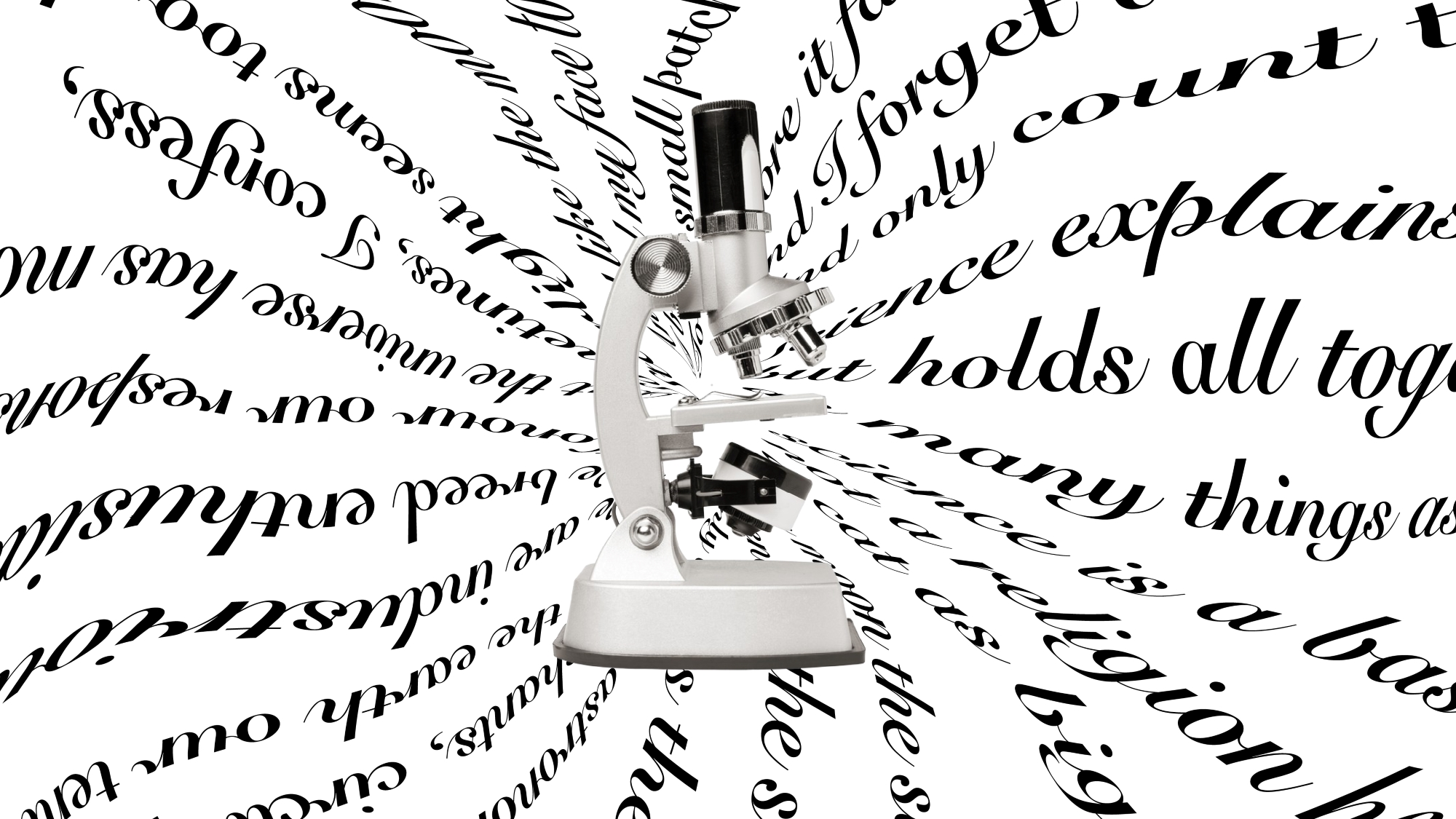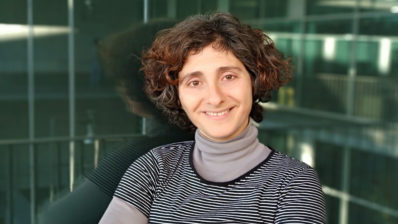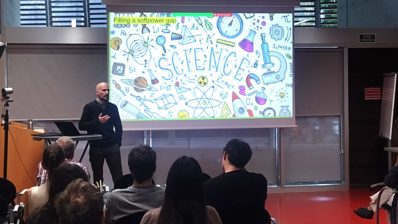Poetry and science might seem as removed from each other as the desert and the ocean.
Poetry invoques creativity, intuition, freedom, flexibility, improvisation.
Science involves objectivity, evidence, reason, critical thinking, logic, standards.
However, both disciplines rely on communication; and in order to do good science, both a reasonable and objective mind and a creative and intuitive mind are needed. “After all, good ideas often come from intuition”, says Sam Illingworth, an atmospheric physics expert from the Edinburgh Napier University – and a poet.
Illingworth was in charge of the first edition of the “Rhyme your science” course, organised last May 18th by the PRBB Intervals program, the free continuing education program of the park. The aim, in Sam’s own words, was “that participants come out wanting to bring more poetry into their lives”. And so they did.
“Good ideas often come from intuition”
Sam Illingworth (Trainer of the “Rhyme your science” Intervals course)
A RAW approach to poetry
The 2-hour online session started with a reflection about the perhaps unnecessary dichotomy between science and poetry. Illingworth talked about several inspiring examples (like Marie Curie, who as a PhD wrote a poem about not being good enough as a scientist!) and offered a collection of poems that spanned several centuries, from Charles Darwin’s father explaining the origin of space, to modern poems reflecting on the nature of science.
The participants then analyzed these poems in a fresh, unconventional way. According to Illingworth, “One of the problems of poetry is that people tell us what poetry is and what it isn’t. I offer an alternative, less academic, way of analyzing poetry – just read it and say if you liked it and why!”.
“One of the problems of poetry is that people tell us what poetry is and what it isn’t”
Illingworth’s approach to poetry, and to this course, can be defined as RAW: Read, Analyse, Write. Simple as that. And just like that, after discussing the poems he brought, participants went on to write their own. Although both topic and structure were completely free, Sam suggested two formats:
- Haikus (a traditional nature-themed Japanese poem of less than 17 syllables)
- Nonets (9 verses, the first with 9 syllables, the second with 8, and so on until the last verse, with only 1 syllable)
Participants unleashed their inner creativity to express themselves and talk about their PhD topics or their day to day in the lab. Below you can read some of the poems created during the session.
Illingworth concluded the workshop by inviting researchers to use poetry to interrogate science, to collaborate (also with non-scientists) and to think about their research in a different way. “Poetry actively targets the incubation period of ideas. When you get stuck during problem solving and you stop thinking about it and start doing other things – like writing a poem – often the solution comes”, explains Sam.
And he continues: “In order to solve the great interdisciplinary problems we face we need not only scientists, and even less only scientists that look like me, a white Englishman. We need diversity, because with greater diversity come greater solutions. And we can use poetry to connect with that diversity of people”.
As hinted by one of the poems he brought to the class, “Science is the same as poetry, only it uses the wrong words”.
“Science is the same as poetry, only it uses the wrong words”
From Science – Robert Kelly (2006)
Perhaps this course can help PRBB researchers to find the right words for their science.
About the trainer
Sam Illingworth is currently working on linking scientists and artists and giving voice to marginalised communities. He does this through poetry – he has written 6 books on the topic, including one about famous scientists who wrote poetry – and also through games.
Participants’ poems
From infinite possibilities
your destiny unfolds in front
neuron, muscle, heart, blood, skin,
you have all you need to
become what you must;
now you can’t choose
anymore
you are
skin.
Maruxa Martinez-Campos
(Nonet about stem cells)
The smell of the rose bushes caresses me. Memory goes. Who are you? Andrea Labrado Díaz (Haiku about dementia)
Arrossire Wiggles out of the soft spring’s embrace a scarlet rebel emanates on another frequency pierces my retinas chlorophyll buried anthocyanins dominate, the green blurs. Sabina Colombo (Nonet about an avocado plant producing two bright red leaves, which is quite odd in spring) The title, Arrossire, means “to blush” in Italian, Sabina's mother tongue
The tiny world that there's inside us we are full of microorganisms bacterias in our bodies invisible for us a whole universe sharing our space there they are it is life. Raquel Gordo (Nonet about the microbiome)







